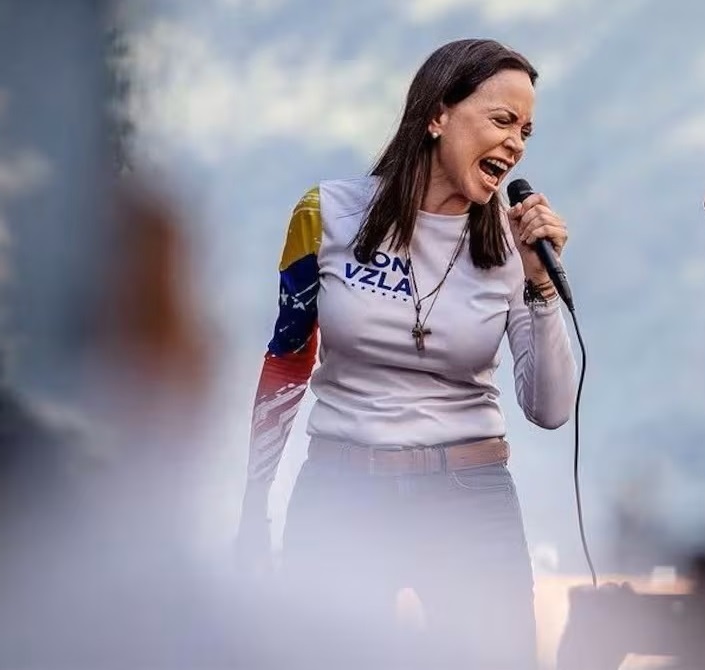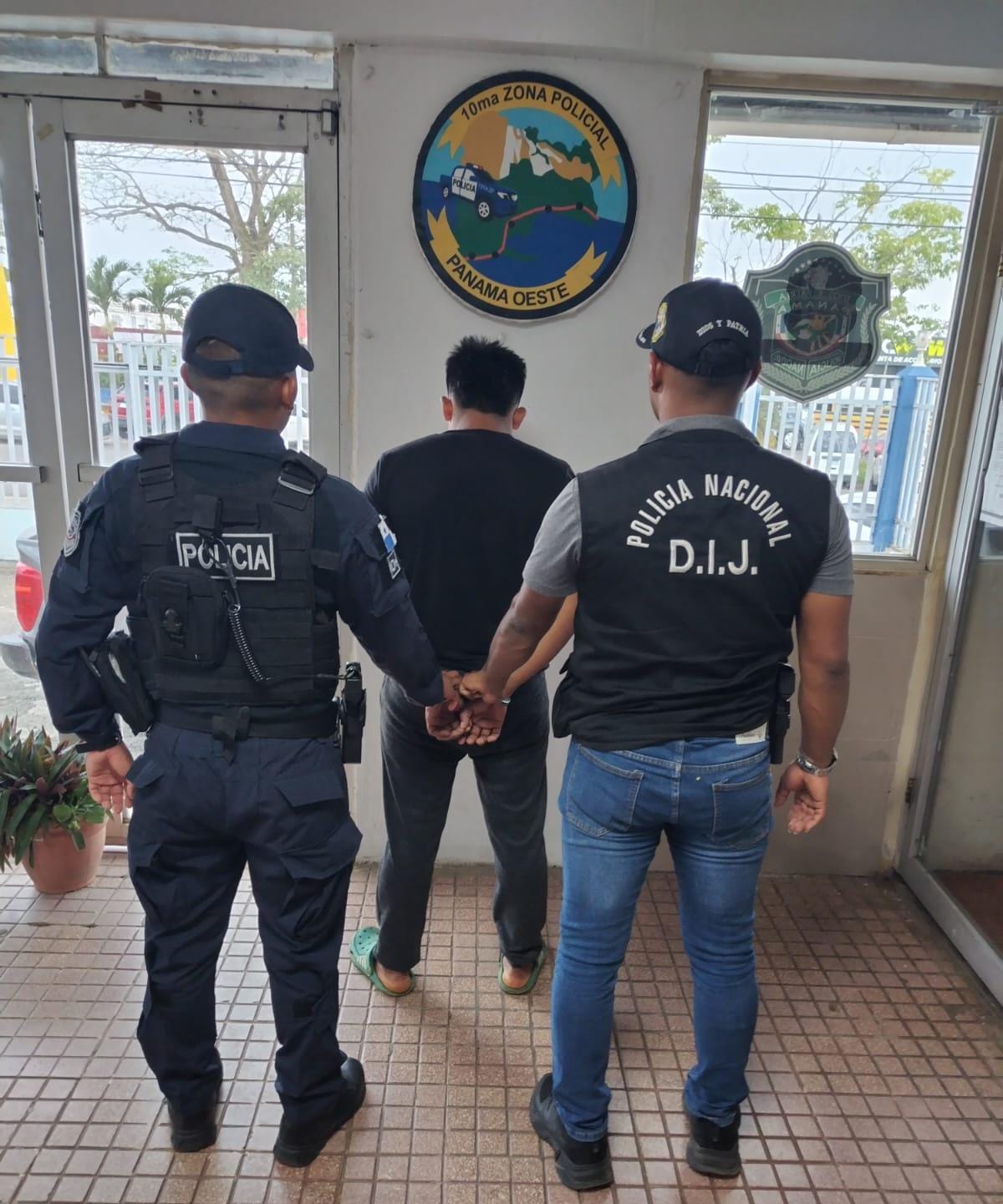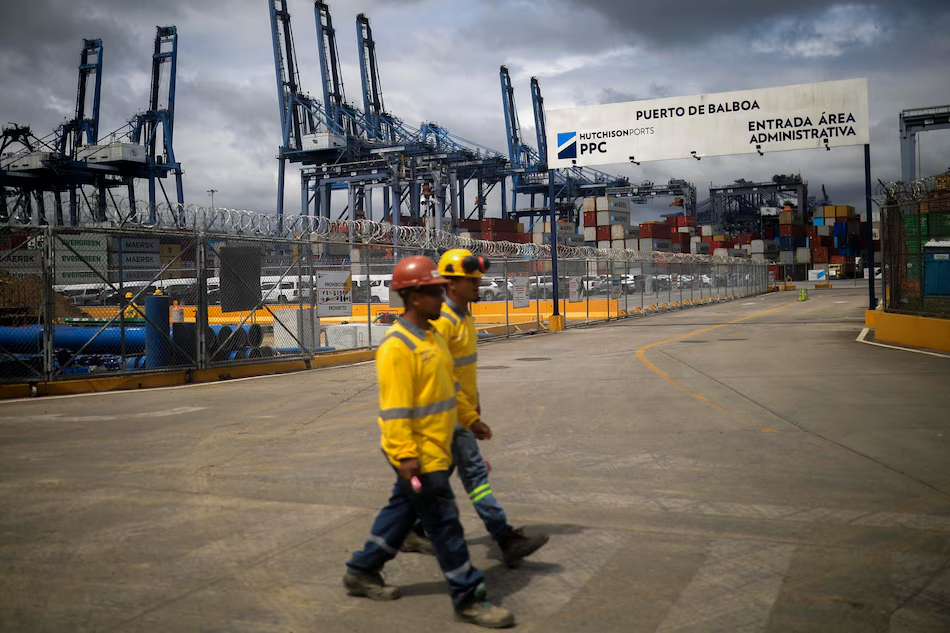U.S. Troops Have Been Training in Panama. We’re Reactivating Our Panama Jungle School
The U.S. may have discussions with Maduro as the Gerald R. Ford aircraft carrier arrives in Caribbean.
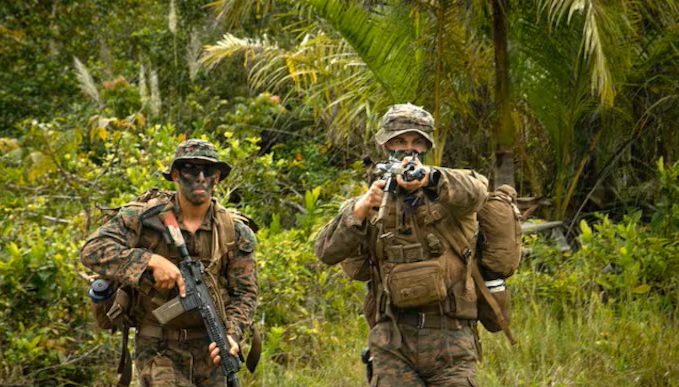
WASHINGTON: The U.S. President said Sunday the U.S. “may be having some discussions” with Venezuelan President Nicolas Maduro, a potential diplomatic avenue as the U.S. further builds up its military presence near the South American country with the arrival of its most advanced aircraft carrier. Trump didn’t offer details about the possible discussions with Maduro, but he said “Venezuela would like to talk.” The U.S. military has been carrying out a series of strikes against vessels suspected of transporting drugs. The arrival of the USS Gerald R. Ford pictured below, and other warships, announced by the Navy in a statement, marks a major moment in what the administration insists is a counterdrug operation but has been seen as an escalating pressure tactic against Maduro.
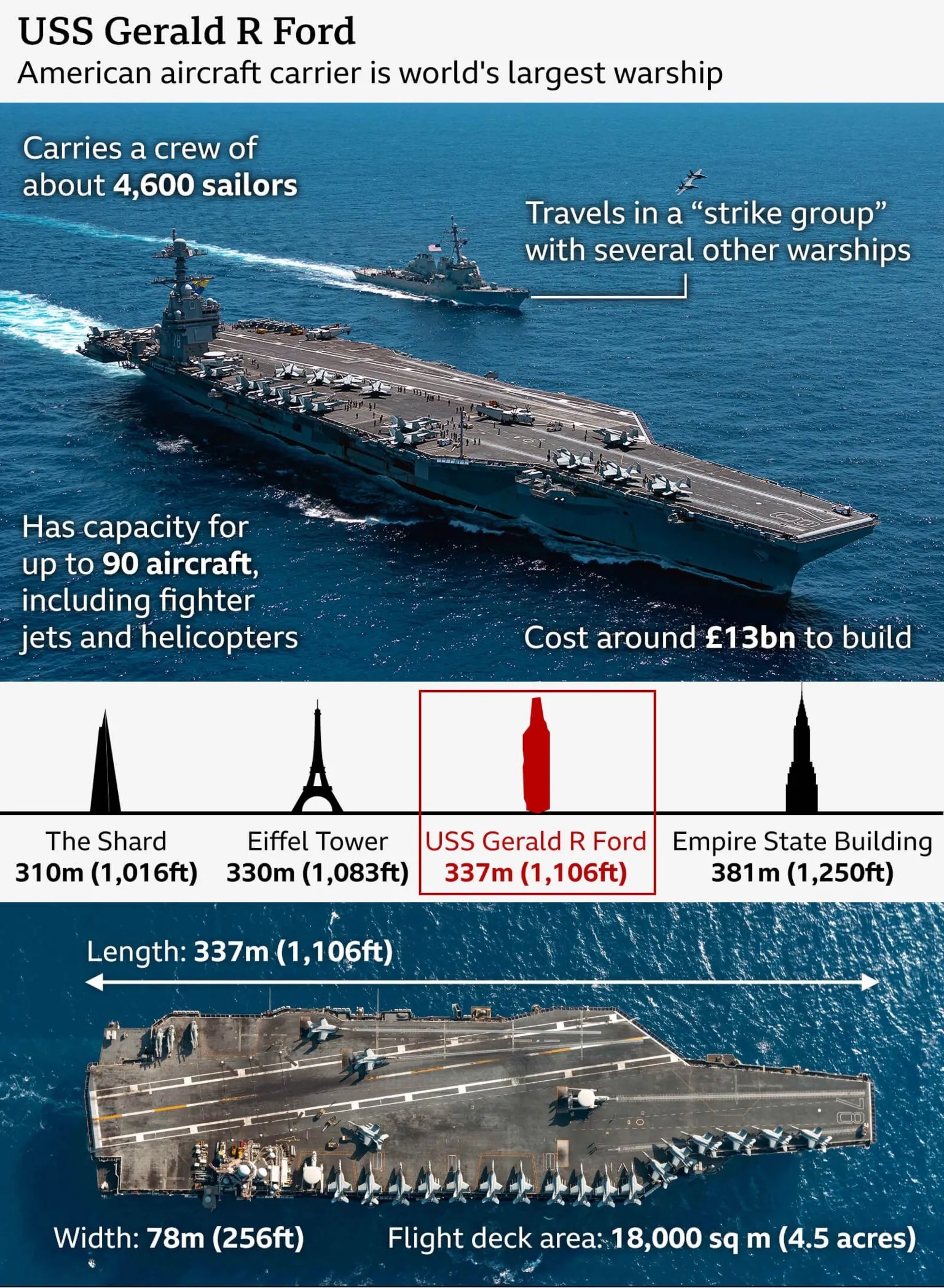
When asked Sunday what he meant when he said Maduro wants to talk, Trump simply said: “What does it mean? You tell me, I don’t know.” “I’ll talk to anybody,” he added a few moments later. “We’ll see what happens.” Venezuela’s government didn’t immediately reply to a request for comment. Maduro, who faces charges of narco-terrorism in the U.S., has said the U.S. government is “fabricating” a war against him. The Ford rounds off the largest buildup of U.S. firepower in the region in generations. With its arrival, the “Operation Southern Spear” mission includes nearly a dozen Navy ships and about 12,000 sailors and Marines. The carrier’s arrival coincided with the military announcing its latest deadly strike on a small boat it claims was ferrying illegal drugs.
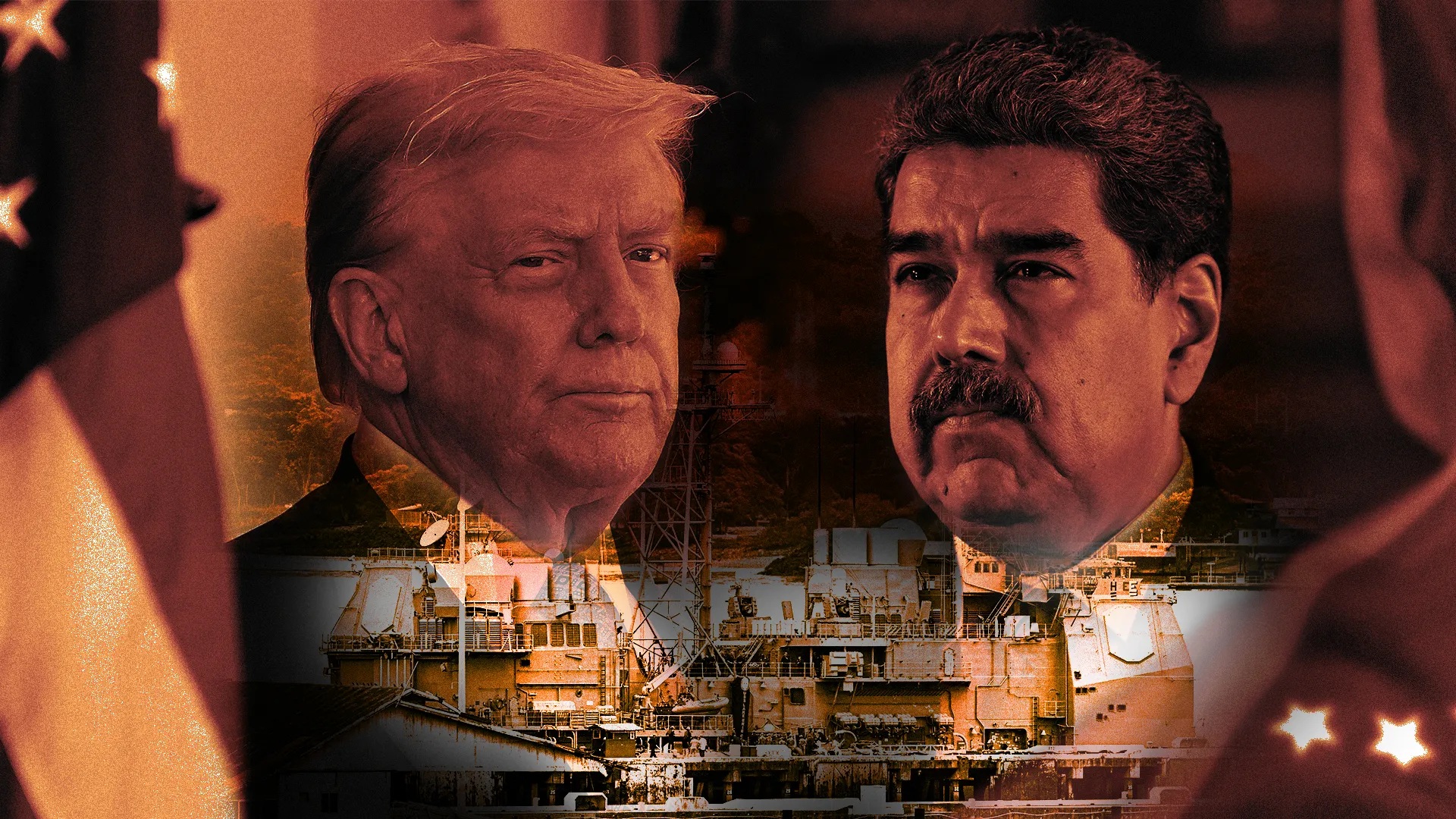
The military’s Southern Command posted a video on X on Sunday showing the boat being blown up, an attack it said took place Saturday in international waters of the eastern Pacific Ocean and killed three men. The military did not immediately respond to a request for more information. Since early September, such strikes by the U.S. in the Caribbean and eastern Pacific have killed at least 83 people in 21 attacks. The carrier strike group, which includes squadrons of fighter jets and guided-missile destroyers, transited the Anegada Passage near the British Virgin Islands on Sunday morning, the Navy said.

Rear Adm. Paul Lanzilotta, who commands the strike group, said it will bolster an already large force of American warships to “protect our nation’s security and prosperity against narco-terrorism in the Western Hemisphere.” Adm. Alvin Holsey pictured above, the commander who oversees the Caribbean and Latin America, said in a statement that the American forces “stand ready to combat the transnational threats that seek to destabilize our region.” Holsey, who will retire next month after just a year on the job, said the strike group’s deployment is “a critical step in reinforcing our resolve to protect the security of the Western Hemisphere and the safety of the American Homeland.”
U.S. Military Holds Training Exercises in Trinidad, Tobago and Panama
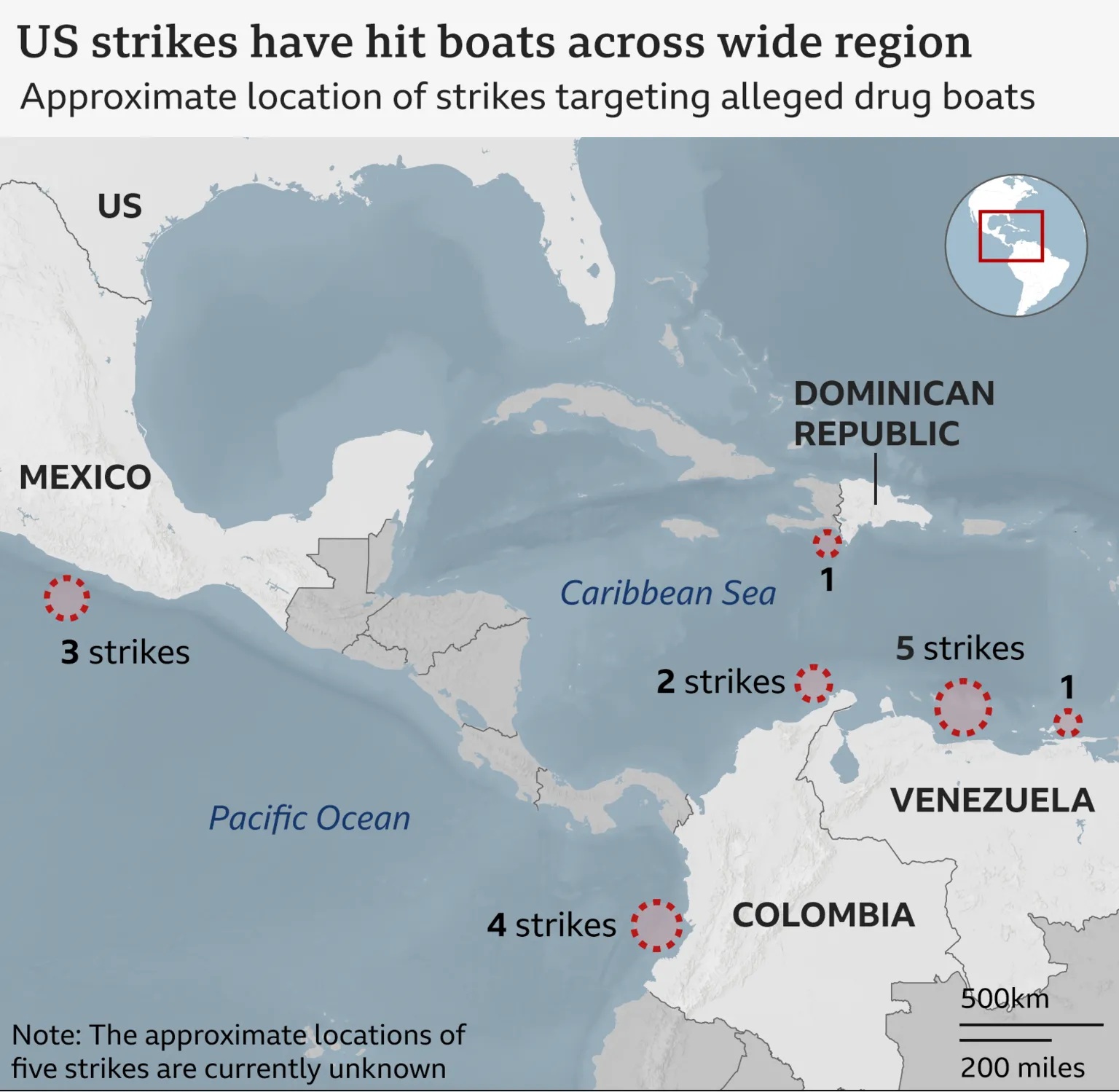
In Trinidad and Tobago, which is only 7 miles from Venezuela at its closest point, government officials said troops have begun “training exercises” with the U.S. military that will run through much of the week. Minister of Foreign Affairs Sean Sobers described the joint exercises as the second in less than a month and said they are aimed at tackling violent crime on the island nation, which has become a stopover point for drug shipments headed to Europe and North America. The prime minister has been a vocal supporter of the U.S. military strikes.
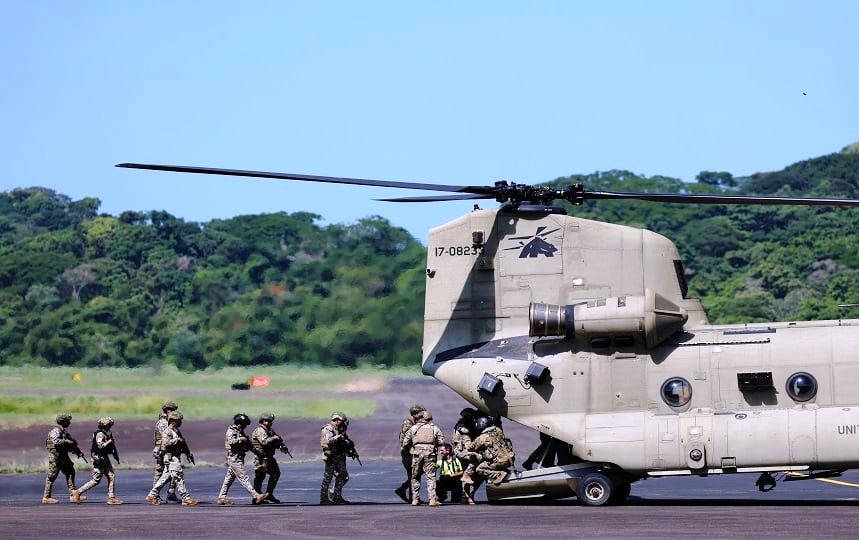
The exercises will include Marines from the 22nd Expeditionary Unit who have been stationed aboard the Navy ships that have been looming off Venezuela’s coast for months. Venezuela’s government has described the training exercises as an act of aggression. It had no immediate comment Sunday on the arrival of the aircraft carrier. Meanwhile, Army Secretary Dan Driscoll said Sunday that U.S. troops have been training in Panama, underscoring the administration’s increasing focus on Latin America. We’re reactivating our jungle school in Panama. “We would be ready to act on whatever” Trump and Defense Secretary Pete Hegseth pictured below needed, he told CBS’ “Face the Nation.”
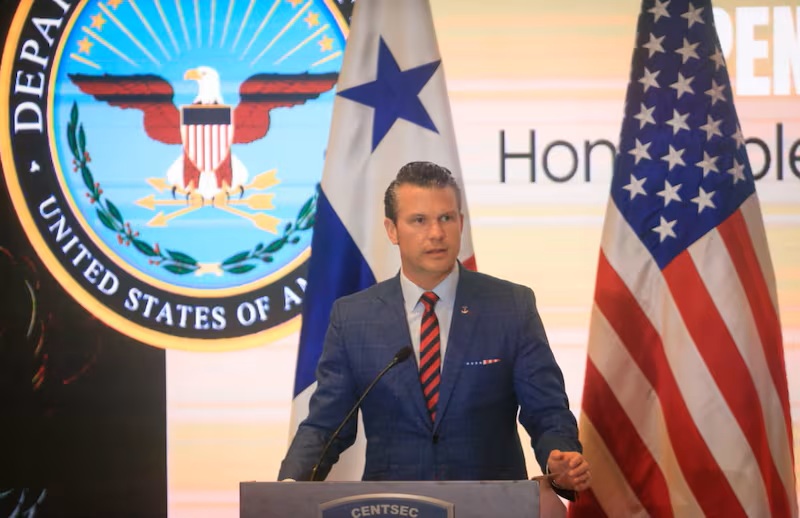
The administration has insisted that the buildup of American forces in the region is focused on stopping the flow of drugs into the U.S., but it has released no evidence to support its assertions that those killed in the boats were “narco-terrorists.” Trump has indicated military action would expand beyond strikes by sea, saying the U.S. would “stop the drugs coming in by land.” On Friday, Trump was asked by reporters if he had made up his mind on what he intended to do about Venezuela. He did not offer details but said, “I sort of have made up my mind.” The U.S. has long used aircraft carriers to pressure and deter aggression by other nations because their warplanes can strike targets deep inside another country.
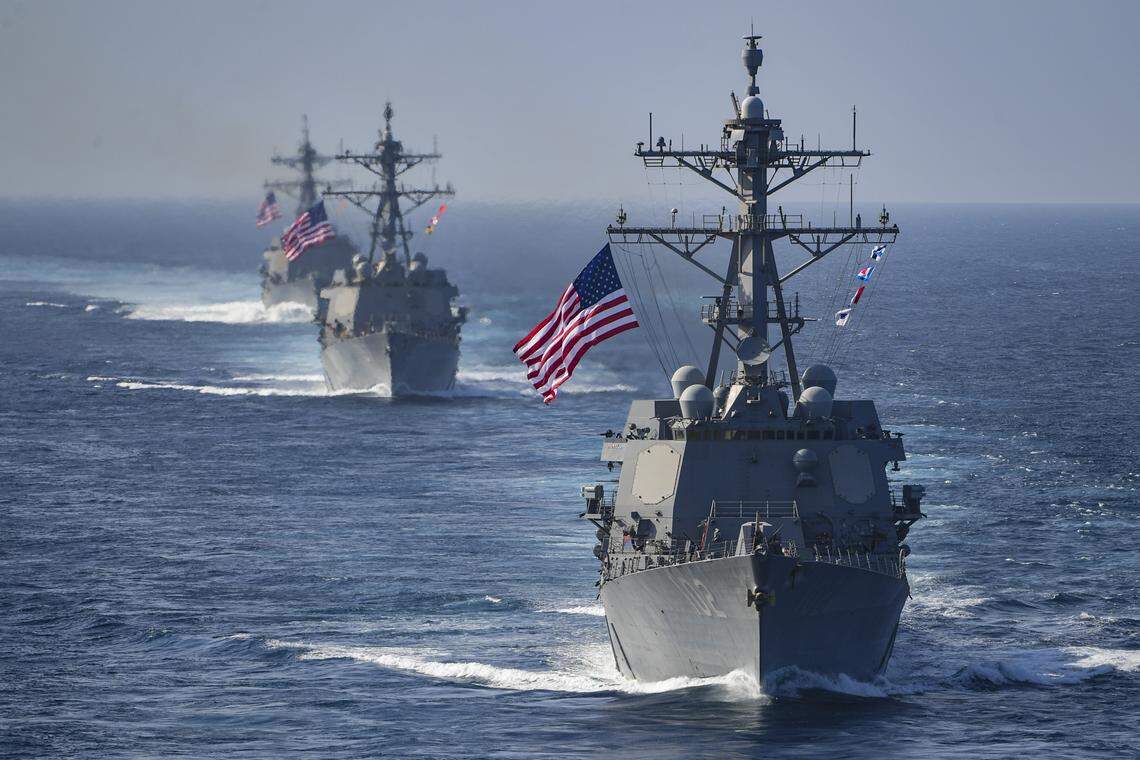
Some experts say the Ford is ill-suited to fighting cartels, but it could be an effective instrument of intimidation for Maduro in a push to get him to step down. Venezuela’s government recently touted a “massive” mobilization of troops and civilians to defend against possible U.S. attacks. Maduro and other officials in Venezuela’s socialist party also have been attending rallies this weekend to back the creation of neighborhood committees that will be in charge of increasing membership in Venezuela’s socialist party, and promoting the party’s policies.
U.S. to Designate a Venezuelan Cartel a Foreign Terrorist Organization
Secretary of State Marco Rubio pictured below says the United States does not recognize Maduro, who was widely accused of stealing last year’s election, as Venezuela’s legitimate leader. Rubio has called Venezuela’s government a “transshipment organization” that openly cooperates with those trafficking drugs. Rubio said in a statement released Sunday evening that the State Department intends to designate Cartel de los Soles, or Cartel of the Suns, a foreign terrorist organization. Rubio said the cartel is headed by Maduro and other high-ranking members of his government and is among those “responsible for terrorist violence throughout our hemisphere as well as for trafficking drugs into the United States and Europe.”

When the designation takes effect on Nov. 24, it will be a crime to provide “material support” to the cartel or its members. Trump has justified the attacks on drug boats by saying the U.S. is in “armed conflict” with drug cartels while claiming the boats are operated by foreign terrorist organizations. He has faced pushback from leaders in the region, the U.N. human rights chief and U.S. lawmakers, including Republicans, who have pressed for more information on who is being targeted and the legal justification for the boat strikes. Senate Republicans, however, recently voted to reject legislation that would have put a check on Trump’s ability to launch an attack against Venezuela without congressional authorization.
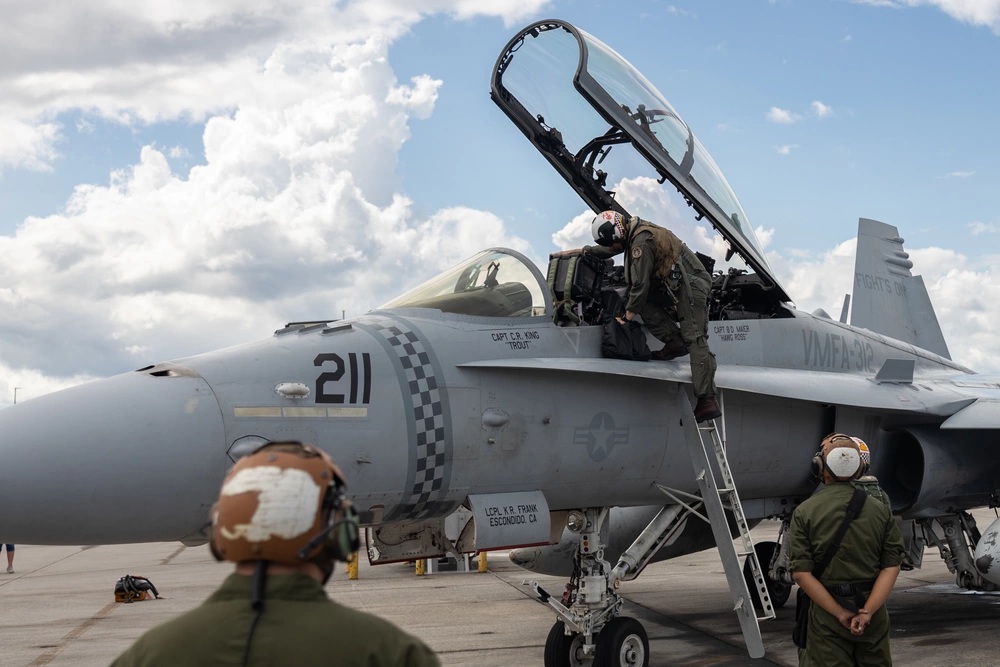
Experts disagree on whether or not American warplanes may be used to strike land targets inside Venezuela. Either way, the 100,000-ton warship is sending a message. “This is the anchor of what it means to have U.S. military power once again in Latin America,” said Elizabeth Dickinson, the International Crisis Group’s senior analyst for the Andes region. “And it has raised a lot of anxieties in Venezuela but also throughout the region. I think everyone is watching this with sort of bated breath to see just how willing the U.S. is to really use military force.”
Venezuela’s Maduro ‘Ready to Talk’ as US Ramps Up Pressure
Venezuelan leader Nicolás Maduro pictured below has said that he is willing to hold face-to-face talks with representatives of the Trump administration as US pressure on him grows. Maduro made the comment hours after US President Donald Trump said he had not ruled out deploying ground forces to the South American country. The Trump administration has accused Maduro – whose re-election last year was dismissed as rigged by many countries – of being the leader of a drugs cartel. Maduro has denied the allegation and accuses the US of trying to incite a war to gain control of Venezuela’s oil reserves. Since Trump was sworn in to a second term in office in January, the US government has been increasing its pressure on Maduro.
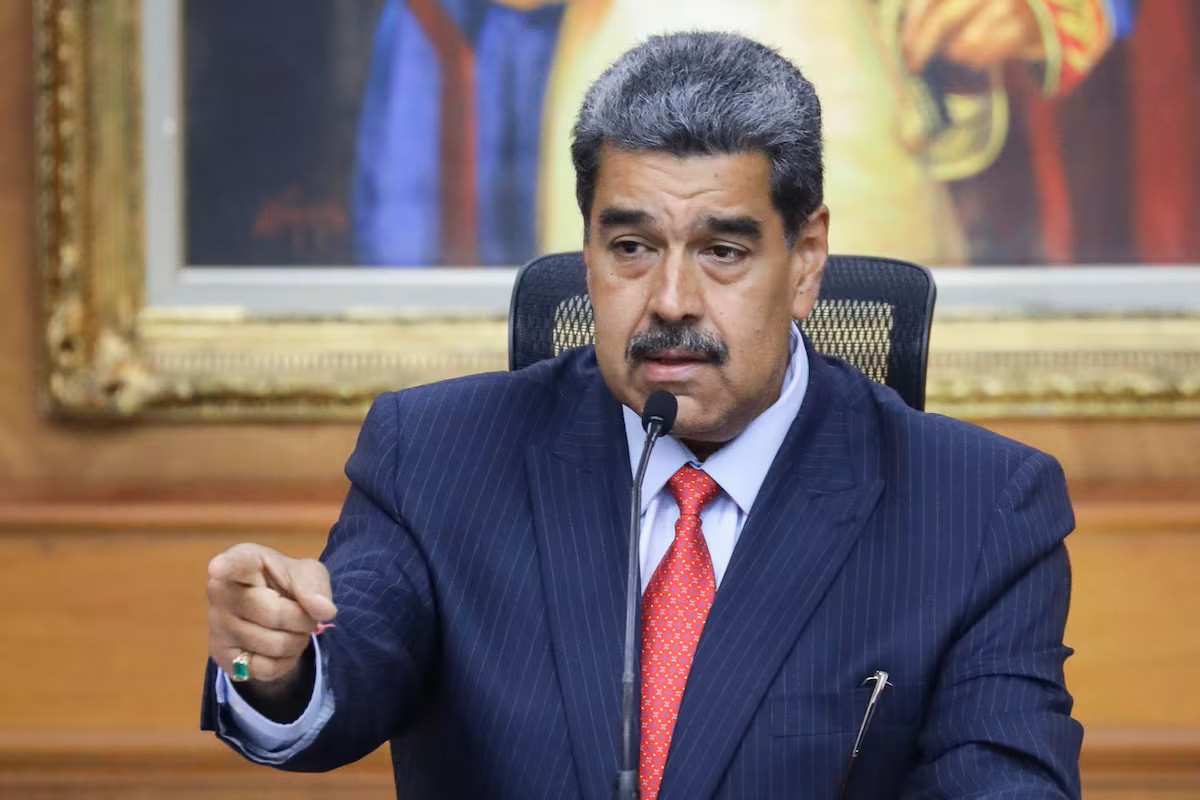
It has doubled the reward it offers for information leading to his capture to $50 million USD and in August launched a counter-narcotics operation targeting boats it accuses of transporting drugs from Venezuela to the US. More than 80 people have been killed in the US strikes on suspected vessels since, most of them in the Caribbean as well as some in the Pacific. According to US Secretary of War Pete Hegseth, the aim of “Operation Southern Spear” is to remove “narco-terrorists” from the Western Hemisphere. But legal experts have questioned the legality of the strikes, pointing out that the US has provided no evidence that the boats were carrying drugs.
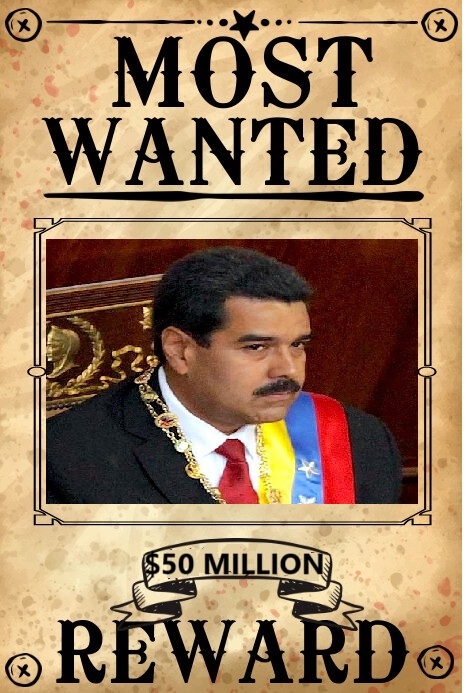
It is also unclear how much of an impact the strikes are having on the wider flow of drugs, a significant portion of which cross the land border between Mexico and the US. The size of the US military deployment – which includes the US Navy’s largest aircraft carrier, the USS Gerald Ford – has also led to speculation both in Venezuela and in the US that its real aim is to remove Maduro from power. Trump has been repeatedly asked by journalists about his government’s plan and has given seemingly contradictory answers. Asked by US broadcaster CBS on 3 November whether the US was going to war with Venezuela, Trump said, “I don’t think so”. But on Sunday, when asked whether he would rule out US troops on the ground in Venezuela, he answered: “No, I don’t rule out that, I don’t rule out anything.”
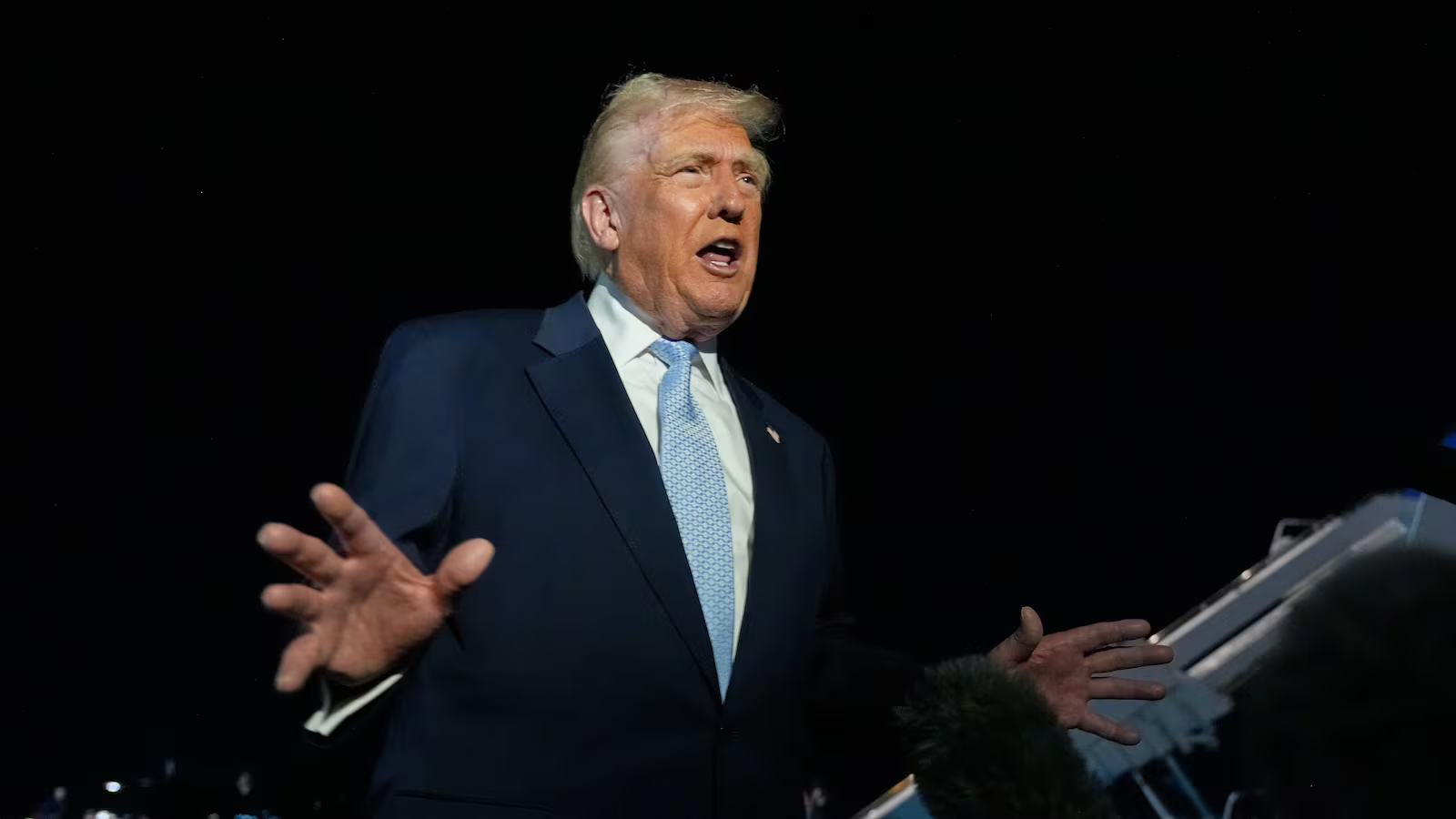
However, when pressed on whether he would speak to his Venezuelan counterpart directly, he said: “I would probably talk to him, yeah.” “I talk to everybody,” Trump pictured above added. Also on Sunday, the US state department said it “intended to designate Cartel de los Soles”, the Venezuelan drug trafficking gang it alleges is led by Maduro, as a Foreign Terrorist Organization (FTO). But rather than doing so immediately, the state department said the move would become effective on 24 November. This delay – combined with Trump leaving the door open to direct talks – has been interpreted by some as a US ultimatum for Maduro: enter into negotiations or face even more draconian US measures.
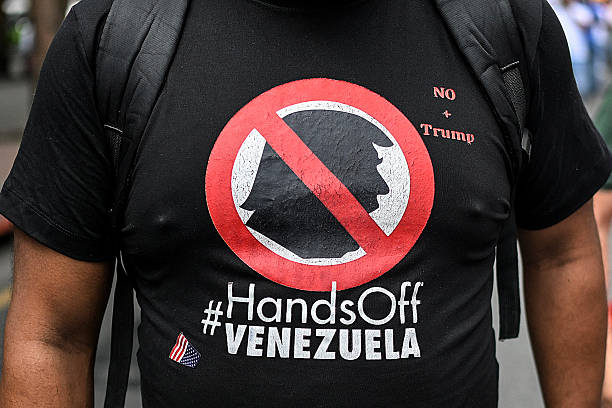
Being labeled as an FTO means it becomes illegal for US citizens to knowingly provide material support or resources to the group in question. According to the White House, it also then becomes the policy of the US to “ensure the total elimination of these organizations’ presence in the United States and their ability to threaten the territory, safety, and security of the United States”. Some analysts think that just as the Trump administration has argued that it is legal to target alleged drug boats in the Caribbean because of the danger they say they pose to US citizens, it could use the FTO designation to bolster support for strikes against the Cartel de los Soles on Venezuelan soil.
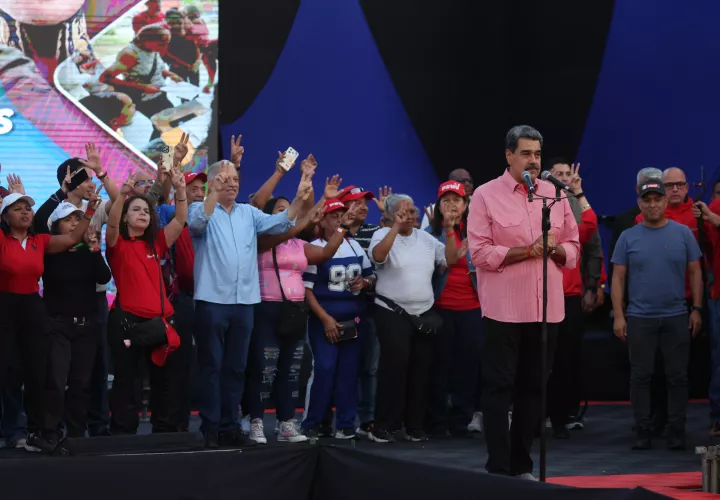
In several of his recent public appearances, Maduro has addressed the US people directly, even speaking – and once even singing – in English. On Monday, he said “dialogue, call, yes, peace, yes, war, no, never, never war” and stressed that he was ready to talk “face to face” with anyone in the US “who wants to talk to Venezuela”. Past attempts by various parties at negotiating with representatives of the Maduro government have failed. Talks between the Venezuelan opposition and the Maduro government mediated by Norway and held in Barbados broke down as did an earlier Vatican-backed effort at finding a way out of Venezuela’s political crisis.

While the US has been ratcheting up the pressure on Maduro, Venezuelan opposition leader and Nobel Peace Prize Winner María Corina Machado pictured above has been trying to encourage the Venezuelan military to switch sides and turn on Maduro. Speaking and posting from an undisclosed location in Venezuela, where she has been hiding to escape arrest, Machado has long denounced the Maduro government as “a criminal structure” and called on Venezuelans to unite to depose it.
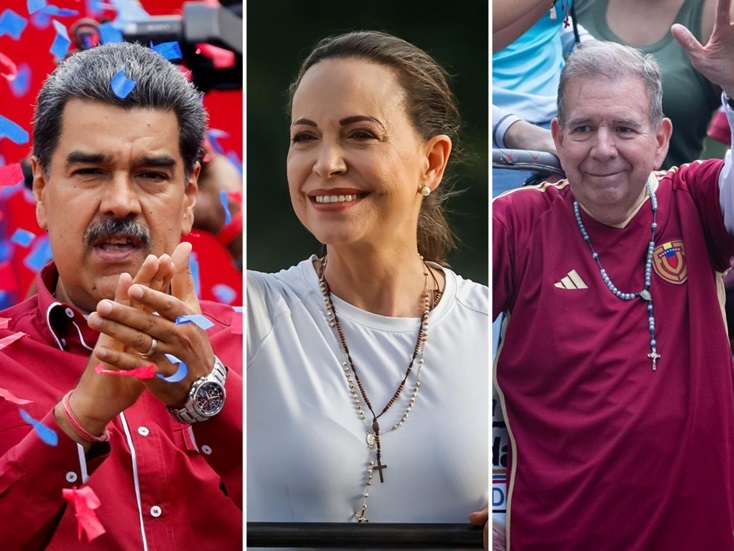
On Tuesday, she uploaded what she called a “freedom manifesto” to social media in which she outlined her vision for a post-Maduro Venezuela. In it she states that “we stand at the edge of a new era – one where our natural rights will prevail” and argues that Maduro and his close allies need to be held accountable for “crimes against humanity”, citing the mistreatment of political prisoners and detainees under his rule.
